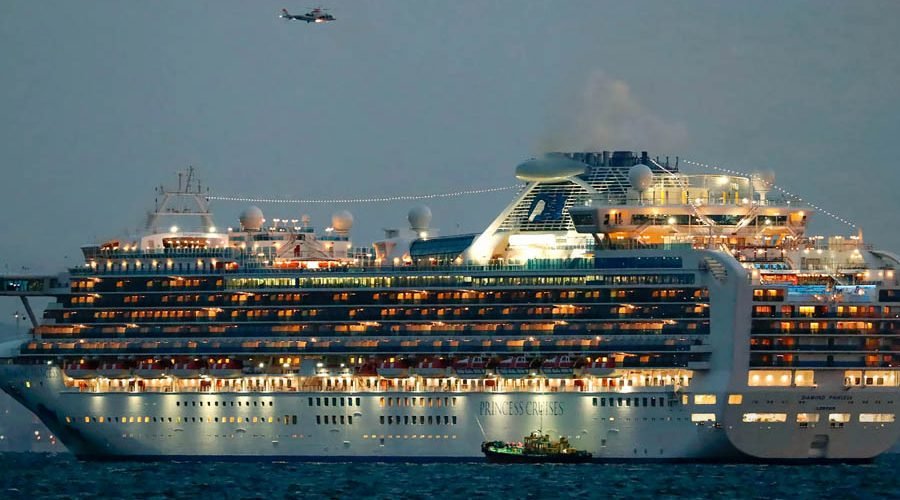A journey aboard a cruise ship often promises a blissful escape from the everyday. The exotic destinations, luxurious accommodations and amenities, endless activities onboard, exceptional service, and gourmet dining options make the experience almost irresistible.
But beneath the veneer of the cruise industry’s advertised glamor lies a darker side – one few passengers imagine yet is all too real. Cruise ships can be dangerous environments rife with physical and sexual assaults, health issues such as norovirus outbreaks, and, in some cases, deaths.
Thankfully, the likes of Aronfeld Trial cruise ship lawyers have been fighting for justice on behalf of passengers and their families who have experienced these travesties. But their actions are not enough – cruise lines must do more to ensure their passengers remain safe and protected.
But do they? Some don’t. Why? And how come they sometimes get away when they sweep serious issues under the rug? Well, keep reading to find out.
Table of Contents
Minimal Reporting
In 2013, cruise lines leaving Florida ports reported 78 crimes in total, according to a West Palm Beach news station report. Those numbers sounded far too low to be true – and they were. After a Freedom of Information Act request for more information, it became apparent that over 300 crimes (nearly four times the initially reported figure) had occurred.
Unfortunately, this practice is not uncommon. Cruise ship companies deliberately underreport their cases to keep the public from knowing how dangerous conditions on board can be for passengers.
An Ingrained Culture
The cruise line industry has a long history of trying to cover up many egregious crimes and incidents, often shielding companies from potential lawsuits and protecting their reputation. Unfortunately, this culture has been entrenched in the industry for many years and is still being practiced today.
In fact, cruise ships and the companies operating them are known to go to extreme lengths to protect their interests, even if it undermines the safety of their passengers. For instance, they’ve been known to do the following:
- Move bodies under the cover of darkness
- Refuse to report rape and assault cases
- Destroy or ‘mysteriously’ lose evidence
- Fail to honor requests for medical assistance
- Hide evidence of passengers who go overboard
- Fail to adhere to safety and health regulations
These examples don’t even capture the complete picture – but they show that cruise lines often prioritize protecting their interests over those of their passengers. But how exactly do they pull off their act? Keep reading…
Piggybacking on Foreign Regulation
US maritime laws offer ample protection for cruise ship passengers. Even so, cruise lines are governed by the laws in whichever country their ships are registered in – meaning they could be held to a lower standard.
For instance, cruise ships are often registered in countries like Panama or Liberia, where passenger rights and safety regulations may be laxer than in the US – thus providing the perfect opportunity for companies to bypass more stringent US laws. As a result, should they find themselves in legal trouble, they can defend themselves and get away.
Lengthy and Complex Process
The cruise line industry is also notoriously tricky to navigate. Thus, even a minor issue such as finding the right person to file a claim against can be a herculean task.
The process can also be long and complex, and as such, many would-be claimants are simply unable or unwilling to fight the system. Similarly, the process could involve multiple intermediaries, many of whom can be difficult to contact or locate. Consequently, victims or their families often find themselves chasing after shadows.
Imagine pursuing a case tried in a foreign jurisdiction. This sounds intimidating, right? Well, cruise line companies know this and use the law to their advantage.
Greater Financial Muscle
The power dynamic at play is also evident in the resources available to cruise line companies. For instance, they can hire a battery of the best lawyers and the most expensive investigators and use their considerable financial resources to buy off evidence or silence victims.
Given the resources at their disposal, it is no wonder they can cover up deaths and other crimes. Thus, even if claimants manage to access the courts, they often find themselves outmatched.
The Road Ahead
Should we let cruise ships off the hook? No. Despite their deep pockets and sociopolitical influence, cruise lines must be held accountable for the safety of passengers. To this end, governments must ensure cruise lines adhere to the law and protect their passengers.
Likewise, victims must have full access to justice – regardless of their financial or social standing. Access to the proper legal representation can go a long way in ensuring justice is served.
Passengers should also proactively seek information about cruise ship safety regulations and report lapses whenever they happen. Also, everyone should know their rights while aboard a cruise ship – and always exercise them.
We can end the impunity and ensure maximum safety for passengers. But it won’t happen overnight. Everyone has to do their bit. Even so, if you suspect a coverup in the injury or death of a loved one, consult a reputable law firm and let their team take the fight to the cruise line company in question.





